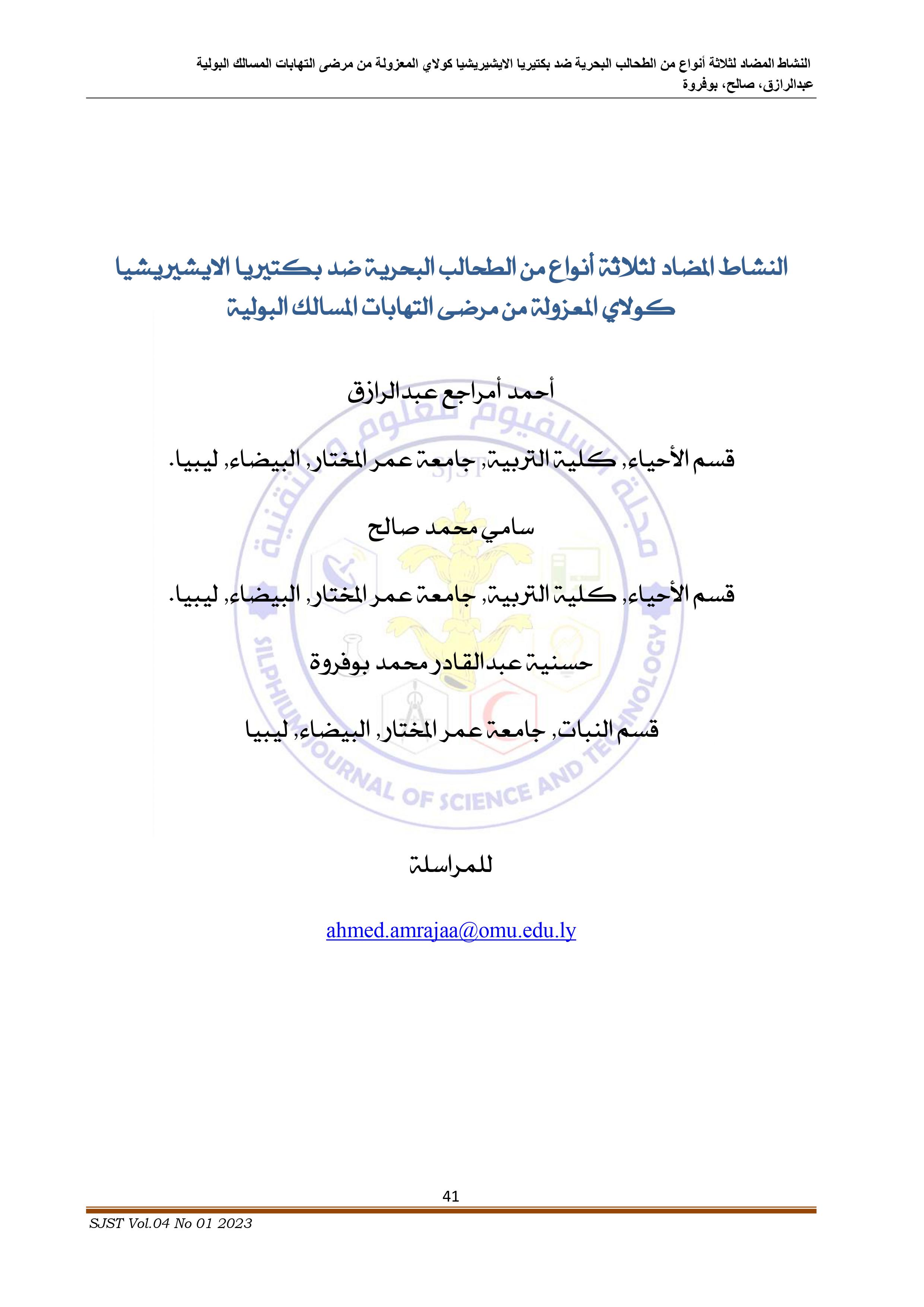Antibacterial Activity of Three Species of Marine Algae against E.coli Isolated from Urinary Tract Infections Patients
Keywords:
E.coli, Urinary tract infections, Marine algae, antibioticsAbstract
E.coli dispersal causing urinary tract infections, inside Libyan hospitals has become a serious threat to health care monitors. Therefore, this study aimed to evaluate the resistance and sensitivity of E.coli isolating from patients (UTI) at Al-Thawra Hospital (males and females), to three species of marine algae (Asparagopsis taxiformis, Sargassum vulgare, Posidonia oceanic), and two common antibiotics (ciprofloxacin and gentamicin), according to Kirby-Bauer method. The results showed that E.coli (UTI) has high resistance towards crude extracts of tested algae, Moreover, E.coli isolated from females were the most resistant to marine algae extracts and antibiotics. On the other hand, The highest sensitivity ratio recorded for marine algae (20, 14%) for males and females, respectively, was for A.taxiformis. Generally, Ciprofloxacin was the most efficient in inhibiting E.coli compared with Gentamicin and Marine algae. The study concluded to marine algae may be a source of new antibacterial drugs, This requires further studies.


